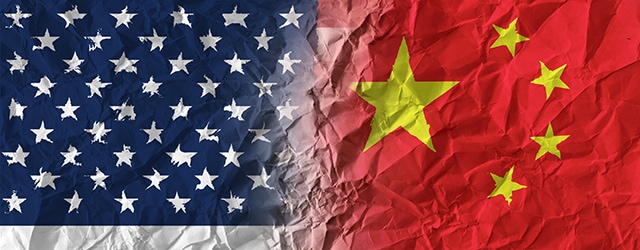The longer the US-China trade war continues, the greater the risk of de-globalization becomes.

U.S. President Donald Trump’s decision to ramp up the trade war with China last week with additional tariffs on $200 billion of Chinese goods is certain to damage both economies and the end result may forge a new world order, economists say.
The 10% import tax—set to kick in by September 24 and rise to 25% by the end of the year—will apply to nearly 6,000 items, including consumers goods, foods and electronics. China has promptly returned fire with plans for 5%-10% tariffs on $60 billion worth of US goods. Trump has said that if China follows through, the US will impose tariffs on an additional $267 billion in Chinese imports.
However, China’s retaliatory measures go beyond slapping tariffs on US goods.
“Surely, China is retaliating with some import tariffs on US but it is also, most importantly, lowering the import tariffs from the rest of the world and also offering tax breaks to the products targeted by the US,” explains Alicia Garcia-Herrero, Hong Kong-based chief economist for Asia Pacific at investment bank Natixis. “[We can also] expect more [retaliation] to come especially from the investment side. Both US and China are going to stop each other’s foreign direct investment, especially in strategic sectors.”
The outlook for US-China economic ties is mutually dire. In a statement, William Zarit, chairman of American Chamber of Commerce in China, said that the “downward spiral” he had previously predicted now seems certain to materialize. “Contrary to views in Washington, China can—and will—dig its heels in and we are not optimistic about the prospect for a resolution in the short term. No one will emerge victorious from this counter-productive cycle.”
Like Zarit, Bo Zhuang, chief China economist and director at TS Lombard Research in Beijing, believes further escalation is inevitable, putting further pressure on both US agriculture and Chinese low-end manufacturing. “My thesis is that this will develop into a full-blown trade war,” he told Global Finance. “Before the end, I think will see 25% tariffs on $450 billion worth of goods and both the US and China will lose out”.
However, Zhuang does not share to view that there will be no winners, adding that countries like Mexico, Malaysia, and Vietnam will benefit as production reroutes to these areas, particularly in the auto parts industry. Natixis’ Garcia-Herrero makes the same observation: “Some potential winners could be Mexico and Vietnam since production can move to these countries from China.”
Europe also stands to benefit. Garcia-Herrero notes that first batch of tariffs ($50 billion on each side) saw European manufacturers of general purpose machinery substitute Chinese exporters to the US while European car manufacturers and aerospace replaced US exporters in China. This time around, Europe will see big gains in the Chinese markets, particularly in areas such as medical and precision products and chemicals.
Despite some medium-term benefits for some industries and jurisdictions, the prognosis for the global economy’s health and integration is poor. Zhuang notes that global foreign investment and trade will suffer in the long-term, causing a slowdown in merger and acquisition (M&A) activity. He says: “I think there will some level of de-globalization. Eventually, the world could dissolve into three main trading blocs: Europe, North America, and Asia. M&A will continue within those regions but less so between them.”
Garcia-Herrero shares similar concerns: “Both will lose, and so will the world, but this is what it takes to fight for global hegemony.”



